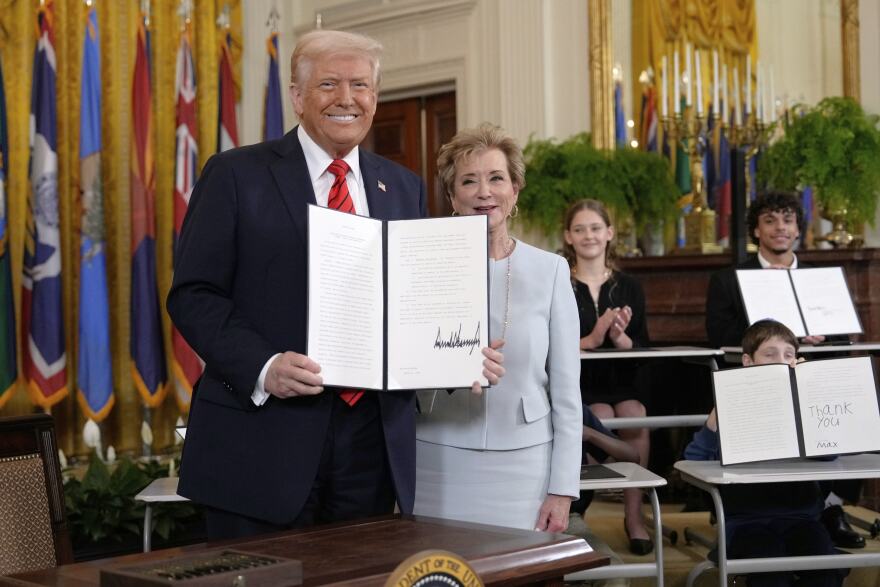There are many legal challenges to President Donald Trump's executive orders from funding cuts to diversity, equity and inclusion programs to the abrupt firings by the Department of Government Efficiency led by Elon Musk.
Avi Soifer, former dean of the University of Hawaiʻi William S. Richardson School of Law, recently signed an amicus brief — a friend of the court filing in a lawsuit filed on behalf of a law firm targeted by Trump because of cases they worked on. The law firm, Perkins Coie, is suing the Trump administration over a recent executive order, "Addressing Risks from Perkins Coie LLP."
Soifer said more than 300 other constitutional law professors signed on to support the argument that the firm's constitutional rights were being violated.
"It's largely First Amendment, but it's also about the right to counsel. You know, basic things, basic First Amendment things, viewpoint discrimination. It's kind of a chief no-no in First Amendment law," Soifer said.
Across the country, a letter sent by the U.S. Education Department to school and state officials stated that any violation of civil rights laws could cost schools their funding.
The letter states that "any violation of Title VI — including the use of Diversity, Equity, & Inclusion (“DEI”) programs to advantage one's race over another — is impermissible. The use of certain DEI practices can violate federal law."
The letter went out on April 3, and school and state officials across the nation, including Hawaiʻi, have 10 days to sign a certification letter attached to the memo, proving that they are complying with the directive.
"The law will never catch up with all these problems... There are lasting effects of cutting off funds. Once the funds are appropriated, you can't do it. That's a central argument," Soifer said.

He added that President Richard Nixon tried cutting off appropriated funds, which was called impoundment. However, the Supreme Court told Nixon that he could not do that. Congress then passed the Impoundment Control Act of 1974, which prohibits presidents from temporarily or permanently withholding enacted funds.
Soifer said he was also very proud that the Hawaiʻi Supreme Court issued a statement in March saying that they "strive to ensure that all people receive fair and respectful consideration in our courtrooms."
"There are all sorts of complicated questions about when you can remove a case, removal from state court to federal court, but it's a little bit of optimism in this terrible legal time," he said.
He also shared that he is specifically concerned about lawyers and how lawyers are being punished amid the Trump administration.

"Lawyers are not always right, but lawyers do have some important, if not noble, things to do when they represent people, even when the people may be dissenters in the minority, not popular," he said. "So I have hope that this is a little historical moment, and then we will go back to understanding the importance of dissent, the importance of not just firing people because you want to. It's a cruel thing to do, and they're doing it very ineffectively and inefficiently, except that it's effective in ruining people's lives."
Soifer said that judges are standing up and doing their duty to "follow the text" — The Constitution.
"I like to quote that the text has a vote, but it doesn't have a veto," he said. "There is a notion in this country, Statue of Liberty, many other symbols of the notion that we are for diversity, and we celebrate not the melting pot, but the crisp salad, where every ingredient keeps its own flavor but adds to the whole. And Hawaiʻi, I think, really answers that more than anywhere else."
This interview aired on The Conversation on April 5, 2025. The Conversation airs weekdays at 11 a.m.





